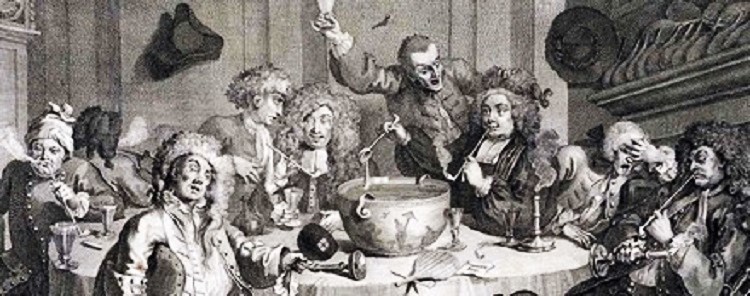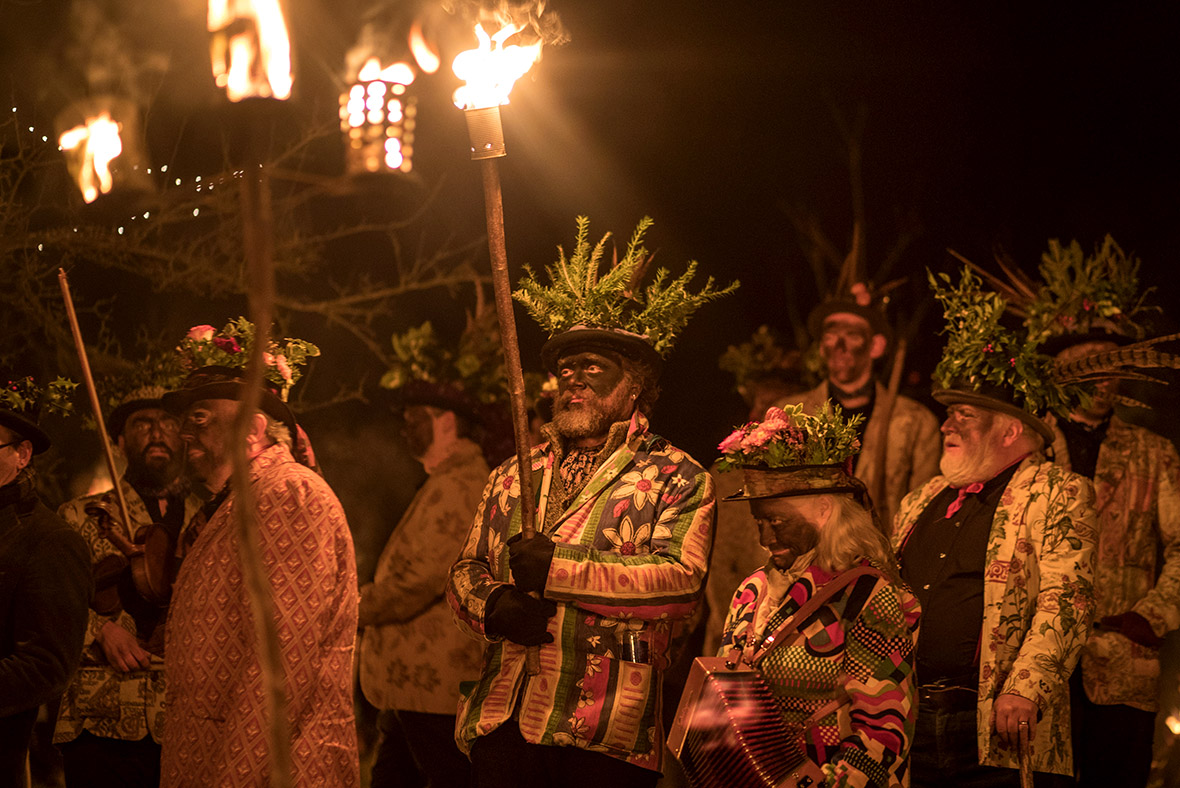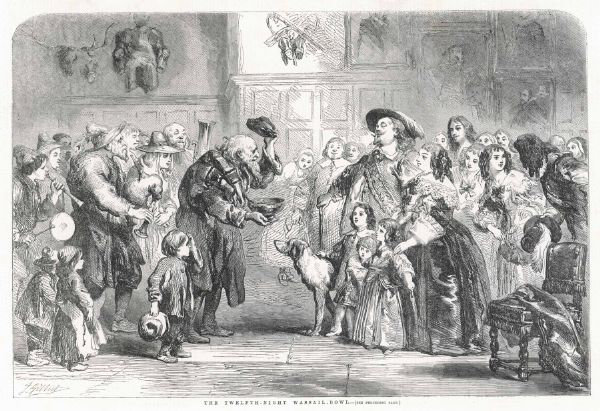Wassail
Rituals for connection and community

Our ancestors lived in the knowing that they and the land were one. They saw the spiritual essence of the landscape and knew that the relationship was reciprocal. A connection to the land is an unbreakable thread that transverses the ages. We can push against nature and its cycles and seasons but what we are left with is a feeling of disconnection.
For those of you longing to feel a connection to your ancestors, take comfort that you are bound to the ways of your forebears by ritual and tradition. In past societies where reliance on a good harvest was vital for survival most if not all these traditions focused around calling on the spirits of the land and looking forward to when the light returns.
Theres is no tradition more in the spirit of kinship and good fortune here on the British Isles than that of wassailing which is an orchard custom sometimes involving toast but always cider and making a loud noise. It takes place just after Christmas and is a welcome reprieve when the promise of Spring feels a very long way off.

The etymology of the word “wassail” can be traced right back to the Anglo Saxons, with “waes hael” meaning “be in good health” - said heartily as you raise your tankard and toast to your comrades, who would respond with “drink hael!” The word appears in this context in the 8 th century poem Beowulf
"The rider sleepeth,
the hero, far-hidden; no harp resounds,
in the courts no wassail, as once was heard."
In another drink related reference from 1066, an anonymous Anglo-Norman poet recorded the words he heard the men proclaim right before the battle of Hastings
“Rejoice and wassail Pass the bottle and drink healthy, Drink backwards and drink to me Drink half and drink empty.”
As folk traditions do, wassail evolved and grew, assuming new life and new meaning, while still maintaining it’s roots in kinship and union with the land. Traditionally taking place in apple growing communities around the West Country, Kent and the Welsh border counties, wassailing, as a verb, became a seasonal activity to ensure a good yield of apple crops in the coming year, in order that the cider could be plentiful.
“Wassail” would still be exclaimed as a toast but you would be drinking to the trees and the tree spirits and asking them to provide well for you in the coming year.
Depending on your location within the British Isles, if you set out one frosty night to your local orchard you might expect to be carrying bread, banging saucepans or following the “wassail butler” (a tradition specific to Chepstow) but always proceeding wholeheartedly and having a jovial drink at the same time.

Pots and pans might be banged with wooden spoons to chase the evil spirits away and to awaken the trees. In Cornwall cider is drunk around the orchard and the remnants poured into the roots of the trees as an offering to the spirits of the harvest. If you lived in Exeter cake would be hung from the branches of the trees and songs sung to the trees to bless them for the coming year.
Folklore from Somerset states that cake, not toast, should be hung from the branches of the largest tree. Common drinks consumed for the wassail would be mead, spiced ale or wine.
Traditionally, wassailing took place on either 5 th January (Twelfth Night) or the 17th of January but today wassailing events run right through until the Spring. If you think you’d like to get involved in a wassail you can scour the Tradfolk Wassail Directory and join an event at your local orchard.
Humans are forever finding hope in impossible places. Wherever you live, perhaps you’ll feel inspired to adopt some of these customs of your own or delve deeper into the traditions of your own land and reclaim lost customs. The wheel keeps turning and the light will surely return.
Wael Hael!
Sarah Eighteen is an aspiring writer hailing from England with a passion for art, history, and paganism. You can find out more at her Instagram